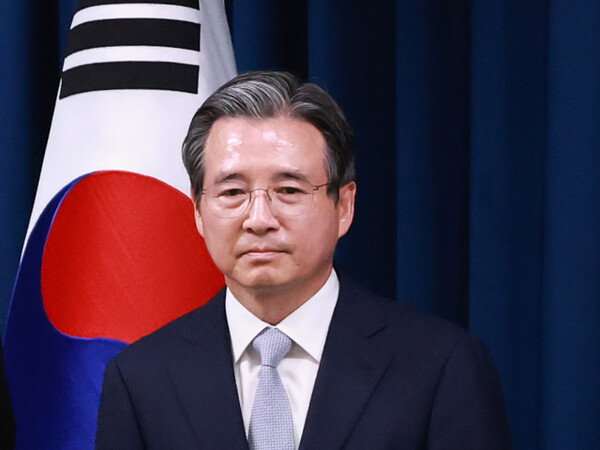
With Kim Yong-beom, who has been active in the private blockchain industry, being appointed as the first policy director of the Presidential Office in the Lee Jae-myung government, the policy preparation for stablecoins is expected to gain momentum. This is because Policy Director Kim had written multiple reports related to stablecoins during his time in the blockchain industry.
According to the blockchain industry on the 8th, Policy Director Kim is a traditional bureaucrat with deep roots in the economic and financial sectors. After leaving public office, he served as the representative of Hashd Open Research, a think tank of Korea's largest blockchain-specialized investment firm Hashd, from 2022 until recently.
Hashd Open Research has been leading various research and proposals about the future of blockchain and virtual asset industries. In particular, they published multiple reports on stablecoins after Donald Trump's presidential election.
In a report titled "Necessity of Won-based Stablecoin and Legislative Proposal" in March, Policy Director Kim argued that "if we leverage the strengths of a won-based stablecoin within the scope of maintaining manufacturing competitiveness, the won can maintain its competitiveness compared to other countries' currencies".
It is known that Policy Director Kim has consistently advocated that Korea should leap forward as a 'Digital G2' (top two countries) alongside the United States, using stablecoins as a lever. This is interpreted as being significantly reflected in President Lee's policy plans.
In a dialogue with economic YouTubers early last month, President Lee emphasized that "creating a won-based stablecoin market can prevent being marginalized and stop capital outflow". In his policy manifesto, he also promised to "prepare measures for issuing, distributing, and utilizing stablecoins".
As a result, the related industries are creating an atmosphere where allowing the issuance of won-based stablecoins is taken for granted. Some speculate that policy weight might shift towards the separately prepared won-based stablecoin by some banks, instead of the 'Project Han River' jointly pursued by the Bank of Korea and six commercial banks.
Project Han River is an experiment to convert bank deposits into tokens linked with central bank-issued digital currency (CBDC) and use them as a payment method in real life. It differs somewhat from private-led stablecoin utilization. President Trump also holds a negative stance, arguing that CBDC could infringe on individual freedoms.
Furthermore, attention is drawn to the possibility of non-bank financial institutions and private fintech companies issuing won-based stablecoins. In a report last month titled "Stablecoin Design for Digital G2", Policy Director Kim argued that "while past trust was built on legal mechanisms like central bank guarantees, bank licenses, and depositor protection, in today's digital currency environment, the design structure itself—such as smart contracts, reserve disclosure, real-time auditing, and redemption algorithms—becomes the basis of trust".
He added, "Existing financial authorities tend to prioritize risk control, and the preference for bank-based design acts as institutional inertia. However, now is the time for Korea to determine the direction of institutional design, not just accept regulations".
However, this conflicts with the Bank of Korea's official position. Bank of Korea Governor Lee Chang-yong pointed out in a press conference on the 29th of last month that "won-based stablecoins could significantly undermine monetary policy effectiveness if non-bank institutions arbitrarily issue them". The Bank of Korea argues that if won-based stablecoins are legally permitted, they should ensure BOK's intervention from the issuance approval stage.








